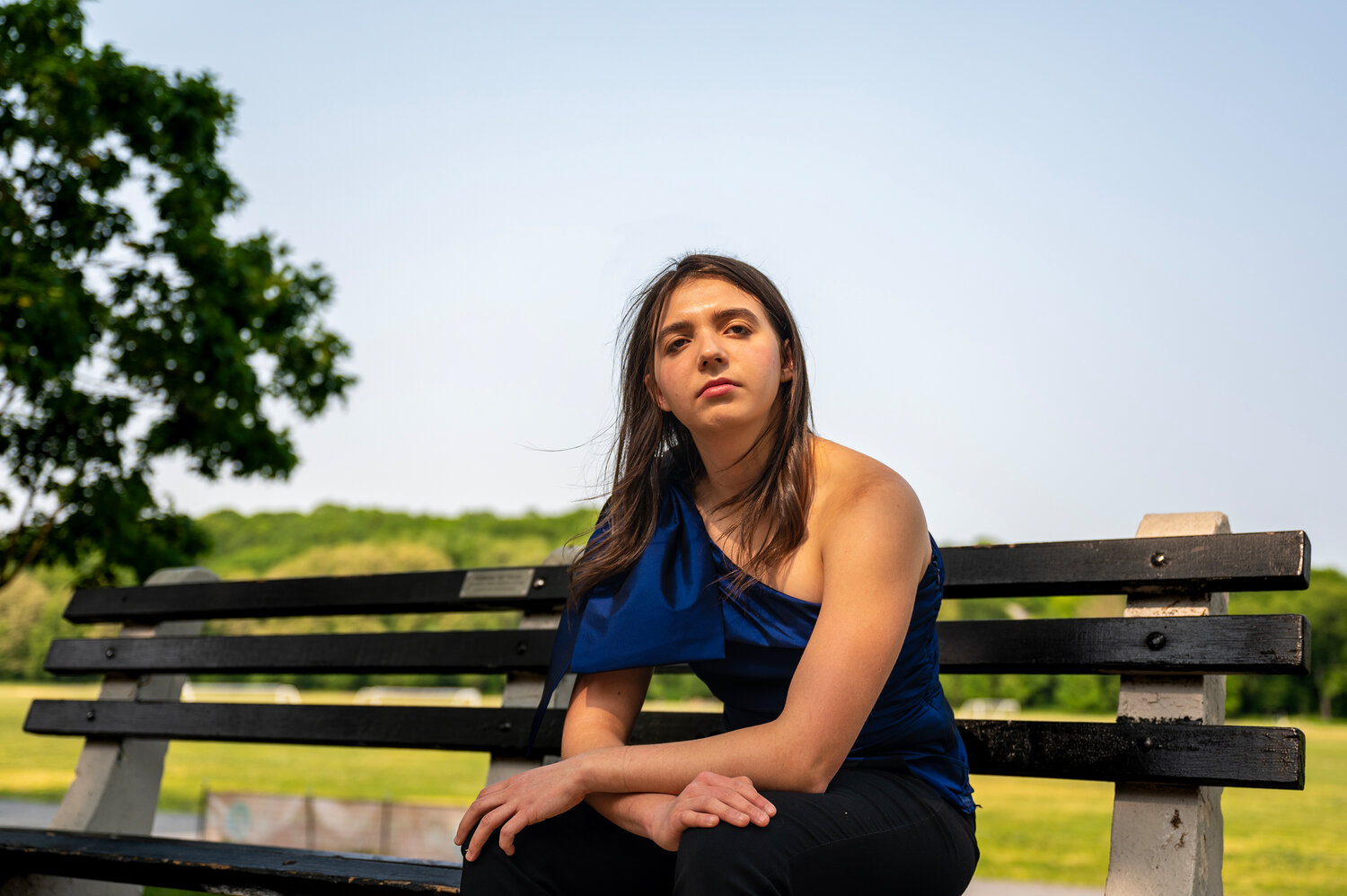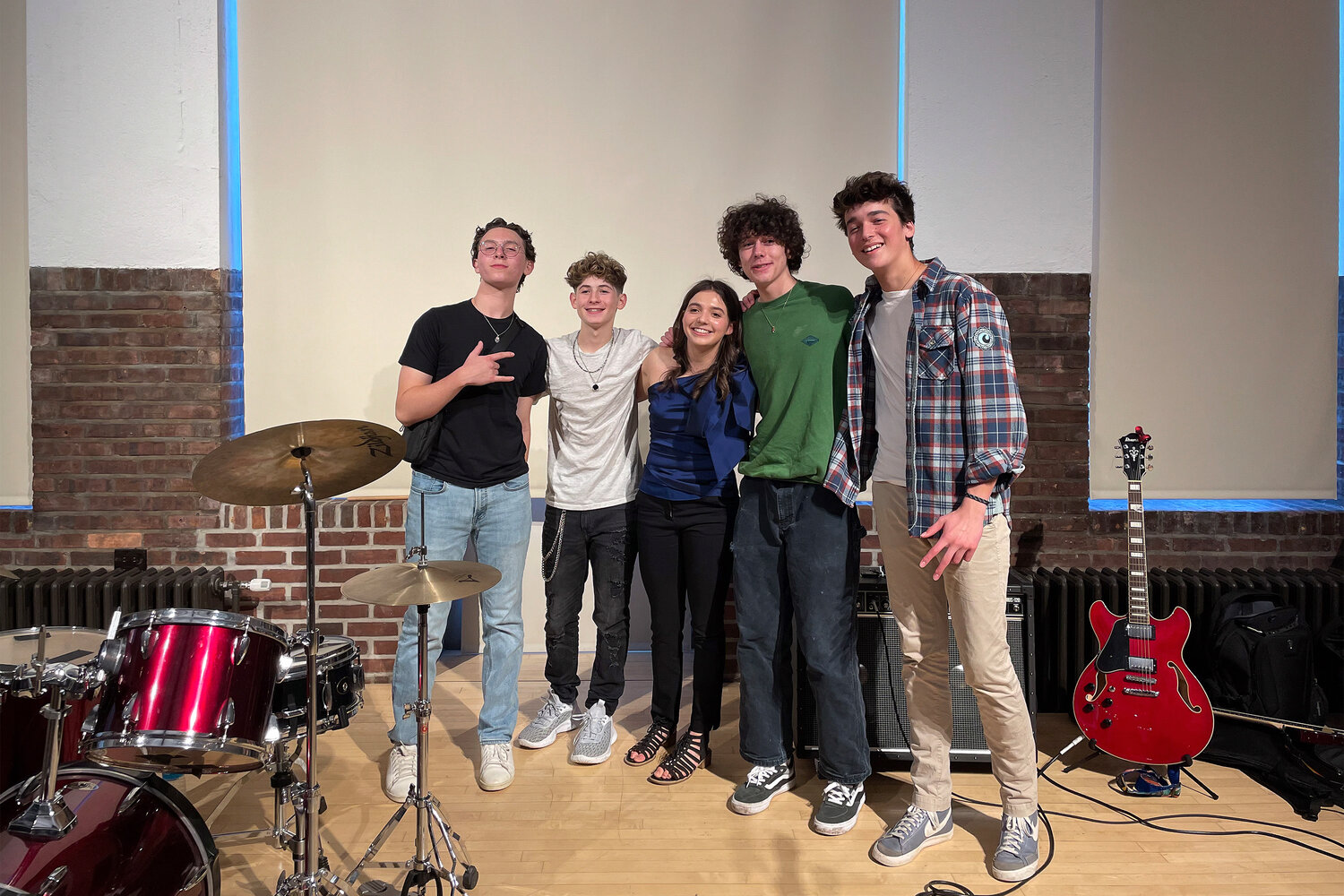Fieldston School student’s gig brings mental health to fore
Concert was Ariana Sidman’s opus as group raises at least $1,500
Fieldston Ethical Culture School became a hub of mental awareness through a benefit concert and discussion on May 9 thanks to one of its sophomores.
“It was awesome; it took so much work — I did it, and when I got home, I was like, holy crap, I just put on a concert,” said Ariana Sidman, a virtuoso who lives on the Upper West Side.
Upper school assistant principal of student life Rashad Randolph played a significant role in guiding Sidman through coordinating with other people, such as touching base with the cafeteria and facilities for accommodation.
Randolph “ensured every logistical detail was accounted for and handed properly. I cannot adequately express my gratitude for your continuous support,” Sidman wrote in the concert program.
The event was just in time for mental health awareness month, which was observed in May. The awareness campaign began in the late 1940s in the United States to reduce the stigma around mental health and encourage open dialogue.
Sidman had struggled with her own mental health. She was only in seventh grade when it was exacerbated by the pandemic that disrupted the routine in adolescents, teens and adults to study remotely and isolate themselves from family and friends while fearing the unknown.
Without fail, music has been a way for Sidman to cope with it.
“I felt it was a perfect opportunity to not only share my music with my peers in the Fieldston community but also raise awareness to something I’m passionate about,” she said.
She sang 10 songs, both hers and notable legends, Elton John’s “Goodbye Yellow Brick Road” and Coldplay’s “Fix You.” But she was not alone. She recruited a band from Urban Garage, which she is a part of as well.
Micah Katchen, the lead electric guitarist, is 12. The talent for his age is “through the roof,” Sidman said.
Micah’s brother Raf Katchen, on drums, and Cole Corper, on bass guitar, are both 16. Merrick Brannigan, 15, on acoustic guitar, skipped school in Boston to perform in Fieldston for mental health awareness.
Urban Garage is a program or curriculum for teens who do not have the chance to practice music their school offers, such as pop, folk, rock, and country. However, the group does not only practice, they meet up monthly for an open mic.
“While much of our time is dedicated to teaching musicianship and performance skills, the real reward has been creating a thriving musical community for these kids and their families,” Liz Queler, co-founder and director of Urban Garage, stated on their website.
“For the first hour, we play our music and get feedback from the audience,” Sidman said. “The second hour, they give us lead sheets. Even if I’ve never heard or played a song before, just by reading off the lead sheet I can accompany a band and follow the form of the song.”
Sidman explains it as a hub where teens from all over New York come together to bond over their love of music.
She also isn’t sure if the musicians she brought together have a connection to mental health as much as she does. But yet, she believes that after Covid, many teens have felt some anxiety and are “connected — because it’s so prevalent in our society.”
After the first five songs she performed solo, and before the band accompanied her on stage, Sidman invited two adolescent psychiatrists to engage in a discussion about teen mental health. This was the interactive element to draw the audience in.
She solicited questions from students and faculty beforehand for Dr. Ramon Burgos a Columbia- and Cornell-trained psychiatrist. He is also a clinical assistant professor of psychiatry at Weill Cornell Medical College. Also on hand was Dr. Hannah Simon, an assistant professor of clinical psychiatry at Weill Cornell Medicine and a fellow in infant and perinatal psychiatry.
The psychiatrists fielded questions on the effects of Covid on adolescents and mental health. Other audience members asked, “How do I control all my emotions from bursting out all at once?” and “how to respond to others telling the individual to just be happy while they admit they are suffering from depression.”
Burgos made an observation.
“As you (audience) were talking, I bet most people here were like yeah that sounds a lot like me,” Burgos said.
Anxiety is a normal reaction to stress and comes in different forms such as phobias, separation, panic and more. Anxiety can be triggered from various of reasons. Sometimes it is hard to spot as it comes in a wide variety of subjects and situations. It can be from a test or a breakup.
The American Psychiatric Association say anxiety is the most common mental disorder and affects 30 percent of adults at some point in their lives. Specific phobia is the most common disorder with an estimated 8 to 12 percent of U.S. adults suffering.
Women have a higher chance of experiencing anxiety. While an estimated one-third of American teenagers are currently suffering from an anxiety disorder. A child might have signs of anxiety, but they are different from that of a teenager.
Kids might fear the monster under their bed, shyness or worry from what might happen to their parents. Teenagers mostly worry about themselves doing well in school and looking the best not to feel insecure.
Sometimes stressors can pass, but if it continues it can heavily impact their quality of life.
“Ultimately, we had a great turnout both virtually and in person. However, the goal is to have the highest number of attendance possible,” Sidman said. “Since this is going to become an annual event there are several factors I am hoping to change for next year.”
In terms of location, Riverdale was not ideal for some of its Fieldston students who may live in Manhattan, especially on a school night. Next year Sidman plans on holding it two days.
Fifty people showed up to the concert — but more than 80 live-streamed. If people wanted — they were able to donate to Creatives Care. This New York City-based organization provides high quality affordable, and accessible mental health treatments to artists.
In total, they raised $1,500.
The concert was one of many things Sidman had done to raise awareness through her music. She has written and sung songs and shared them through her social media.
Nearly one year ago, she dedicated a song to the Uvalde shooting victims.
As she has practiced music for as long as she can remember, her goal in life is to become a psychiatrist — just like her mother.
“And my mother has definitely influenced the path that I’ve decided to take, but I enjoy listening to people, listening to their stories,” Sidman said.
In the second grade, people would approach Sidman with their problems. Moreover, she would serve as a mediator or diplomat.
“And I’ve always been drawn to medicine. So, it seemed like the perfect way for me to do what I love while giving back to my community,” she said.









